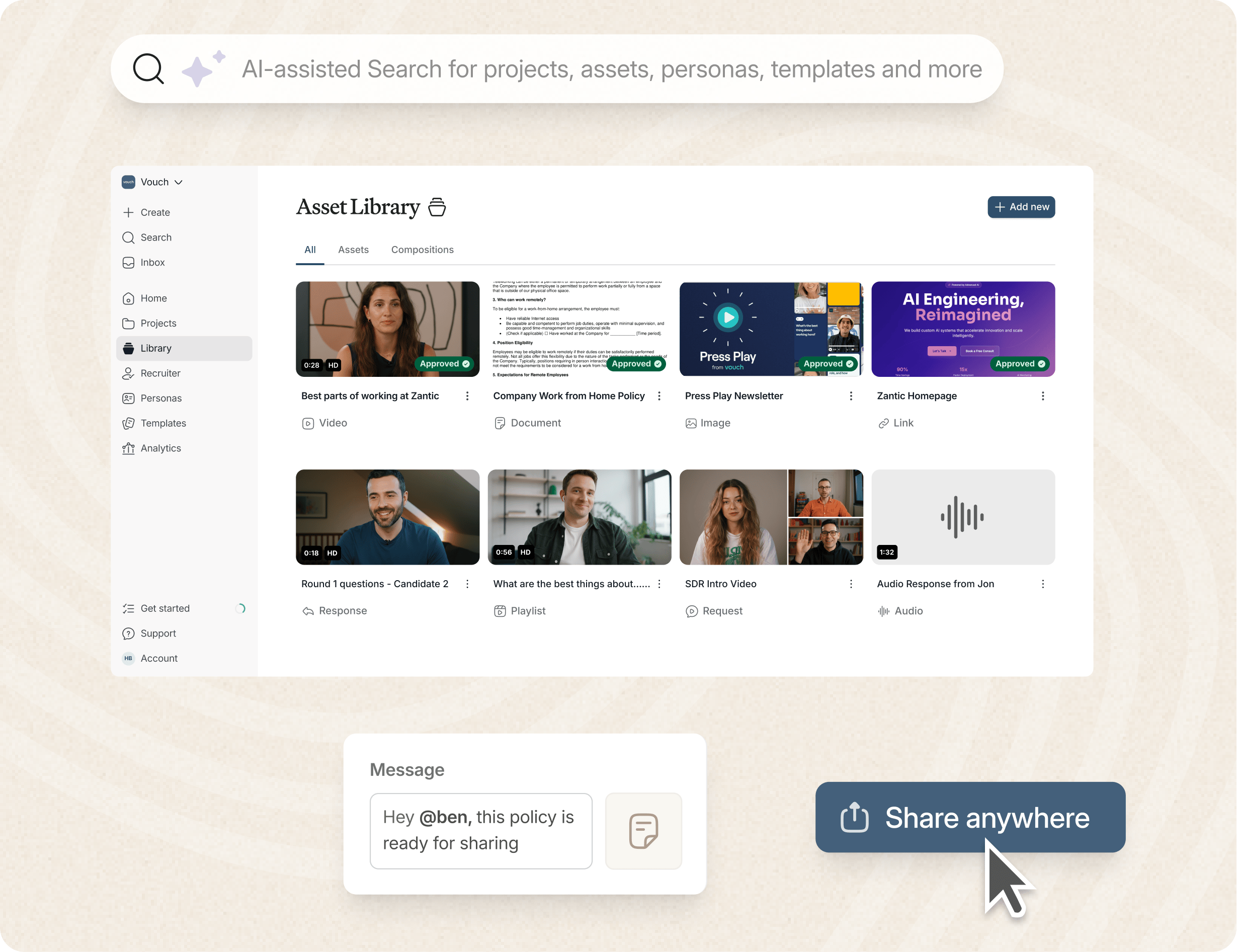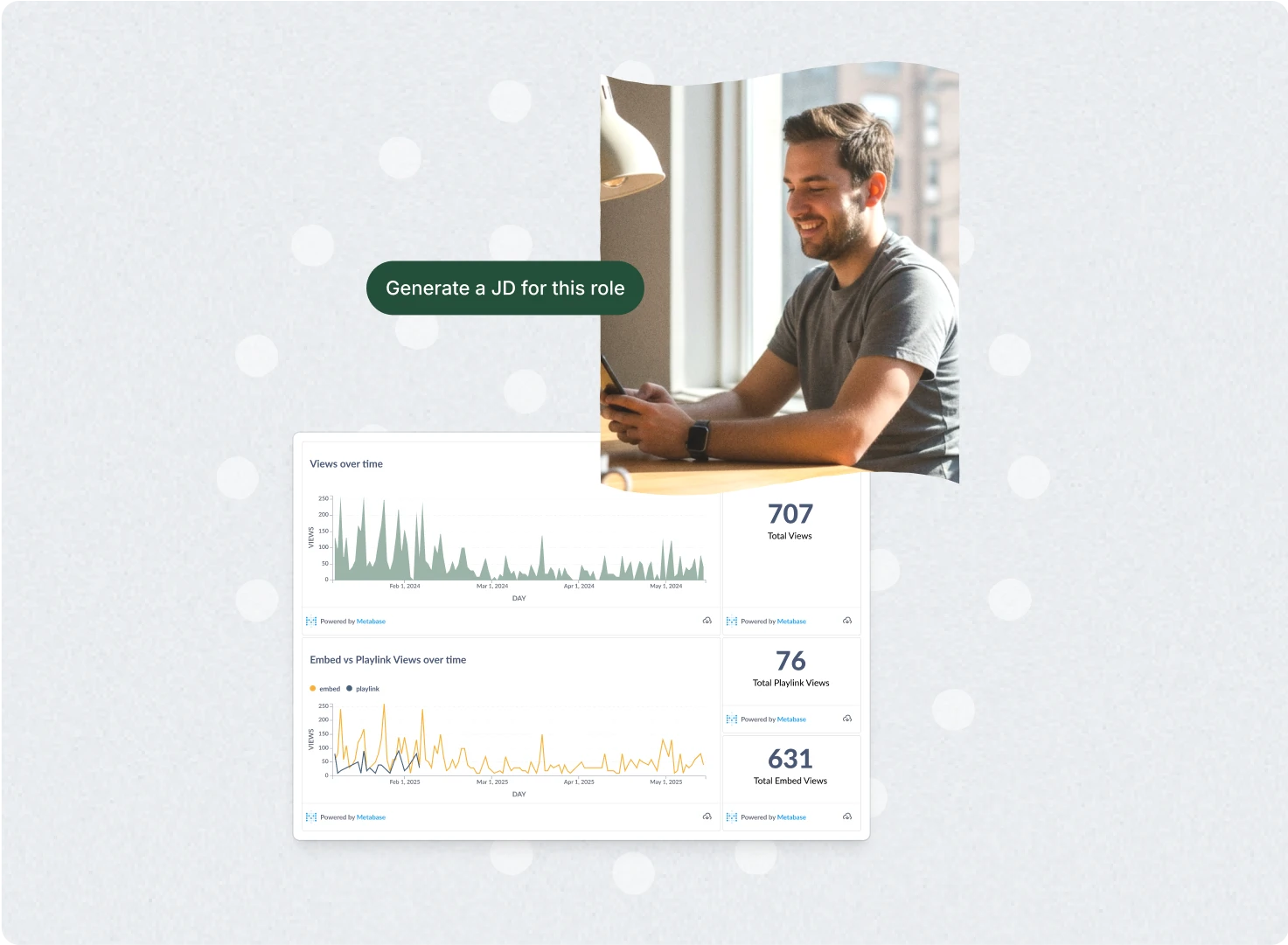If you're growing a company, you may have wondered: what's the difference between a hiring manager and an HR (Human Resources) manager?
These roles often overlap in the hiring process, but they have distinct responsibilities that impact how companies recruit and retain talent.
In this article, we’ll break down the key differences, how they work together, and why understanding these roles can benefit both employers and job seekers.
So let's get started.
What Do Hiring Managers Do?
A hiring manager is responsible for bringing new employees onto their team.
Hiring managers typically serve as the direct supervisor of the new hire and oversee the entire interview and selection process.
Key Responsibilities of a Hiring Manager:
- Identifying staffing needs based on team goals and business growth.
- Getting approval from finance or senior management for hiring.
- Creating job descriptions that clearly outline required skills and experience.
- Collaborating with HR to find, screen, and interview candidates.
- Leading the interview process and making the final hiring decision.
- Supporting the onboarding process to ensure new hires integrate smoothly into the team.
Hiring managers play a crucial role in ensuring the right talent is selected - not just in terms of skills but also in aligning with company culture.
What Do HR Managers Do?
An HR manager oversees the entire employee lifecycle within a company, from hiring to retirement.
HR Managers work on broader workforce strategies, ensuring fair hiring practices, employee satisfaction, and compliance with labor laws.
Key Responsibilities of an HR Manager:
- Developing and implementing HR strategies to attract and retain top talent.
- Managing the hiring process to ensure fairness, diversity, and legal compliance.
- Conducting initial screenings and interviews to shortlist candidates.
- Overseeing onboarding programs to help new hires succeed.
- Handling employee relations, conflict resolution, and workplace culture.
- Implementing training and development programs to close skill gaps.
- Managing employee surveys to improve job satisfaction and retention.
HR managers act as the bridge between employees and management, ensuring that the workplace remains productive and inclusive.
The AI-enabled workspace for talent teams.
- Unified workspace for talent teams
- Accelerate hiring with AI tools
- Auto-generate polished hiring and employer brand content
- Easily repurpose assets across all channel

How Do Hiring Managers And HR Managers Work Together
A successful hiring process depends on effective collaboration between hiring managers and HR managers. Here’s how they divide responsibilities:
Step-by-Step Hiring Process:
- Identifying Staffing Needs (Hiring Manager):
- Assess workload and business growth to determine the need for new hires.
- Evaluate team skill gaps and turnover rates.
- Creating a Hiring Plan (HR Manager & Hiring Manager):
- HR and the hiring manager decide the best recruitment channels (job boards, social media, referrals, etc.).
- Writing & Posting Job Descriptions (HR & Hiring Manager):
- Hiring managers provide job details and expectations.
- HR refines the job post and distributes it across hiring platforms.
- Screening & Shortlisting Candidates (HR Manager):
- HR reviews applications and conducts initial screenings.
- Shortlisted candidates are sent to the hiring manager.
- Conducting Interviews (Hiring Manager & HR Manager):
- HR evaluates cultural fit and soft skills.
- Hiring managers assess technical skills and experience.
- Making the Final Hiring Decision (Hiring Manager):
- The hiring manager selects the best candidate based on feedback.
- HR handles the job offer and salary negotiations.
- Onboarding New Hires (HR Manager & Hiring Manager):
- HR sets up orientation and paperwork.
- Hiring managers ensure a smooth transition into the team.
By working together, hiring managers and HR managers ensure the recruitment process is efficient and leads to better hiring decisions.
What Do Hiring Managers Look For In Candidates?
If you’re a job seeker, understanding what hiring managers prioritize can give you an edge. Hiring managers look beyond qualifications to assess:
- Hard skills & experience: Do you have the necessary expertise?
- Soft skills: Can you problem-solve, communicate well, and work in a team?
- Cultural fit: Will you align with the company's values and work environment?
- Growth potential: Are you adaptable and eager to learn?
- Red flags: Employment gaps, lack of professionalism, or a poor fit with the team.
To stand out, tailor your application to highlight relevant achievements and demonstrate how your skills benefit the company. Research the company, prepare insightful questions, and follow up after interviews to leave a lasting impression.
How Company Size & Industry Impact Hiring Roles
The structure of a company influences how hiring and HR managers function. Here’s how these roles vary across different business sizes and industries:
Small Businesses & Startups:
- The hiring manager may handle most of the recruitment process, from posting job ads to conducting interviews.
- HR might be a one-person department or outsourced.
Large Corporations:
- HR teams are more structured, managing candidate sourcing and compliance.
- Hiring managers focus on technical skills and culture fit.
- Recruitment processes are more formalized, with multiple interview rounds.
Industry-Specific Considerations:
- Tech & Startups: Hiring managers prioritize technical skills and innovation.
- Healthcare: HR ensures candidates meet licensing and certification requirements.
- Creative Industries: Portfolios and creative problem-solving skills take precedence.
Understanding these nuances can help companies refine their hiring strategies and job seekers better prepare for their target industries.
FAQs
What’s the Difference Between a Hiring Manager and an HR Manager?
- Hiring managers focus on filling roles in their department.
- HR managers oversee hiring, training, and employee well-being company-wide.
Who Makes the Final Hiring Decision?
- The hiring manager typically has the final say, while HR facilitates the process.
What’s an Interview Panel?
- A group of interviewers (hiring manager, HR, team members) assessing candidates for a role.
What’s the Typical Hiring Process?
- Identifying a staffing need.
- HR sources candidates.
- Interviews are conducted.
- The hiring manager makes the final decision.
- HR handles job offers and onboarding.
How Can Hiring Managers & HR Work Together Effectively?
- Clear communication and defined roles.
- Joint interview panels for specialized roles.
- Consistent feedback and collaboration throughout the process.
Conclusion
The partnership between hiring managers and HR managers is essential for a successful hiring process.
By working together, they streamline recruitment, make better hiring decisions, and enhance the candidate experience.
As hiring trends evolve, both roles must stay updated on best practices, including leveraging technology, prioritizing diversity and inclusion, and maintaining open communication. Whether you’re a hiring manager or an HR professional, tools like Vouch can simplify your recruitment strategy.
With video content that captures authentic employer reviews and employee experiences, Vouch helps companies like Canva, Nike, and Amazon attract top talent.
See Why HR Leaders Love Vouch!
Loved by companies like Canva, Nike, Cisco, HubSpot, Amazon, and more, tools like Vouch make leveraging video in your business remarkably easy.
Be sure to book a Vouch demo today and chat with a video content expert.
You might also like

Elevate Your Brand Today With Vouch
Discover how Vouch can accelerate talent acquisition while helping you stay on-brand.






